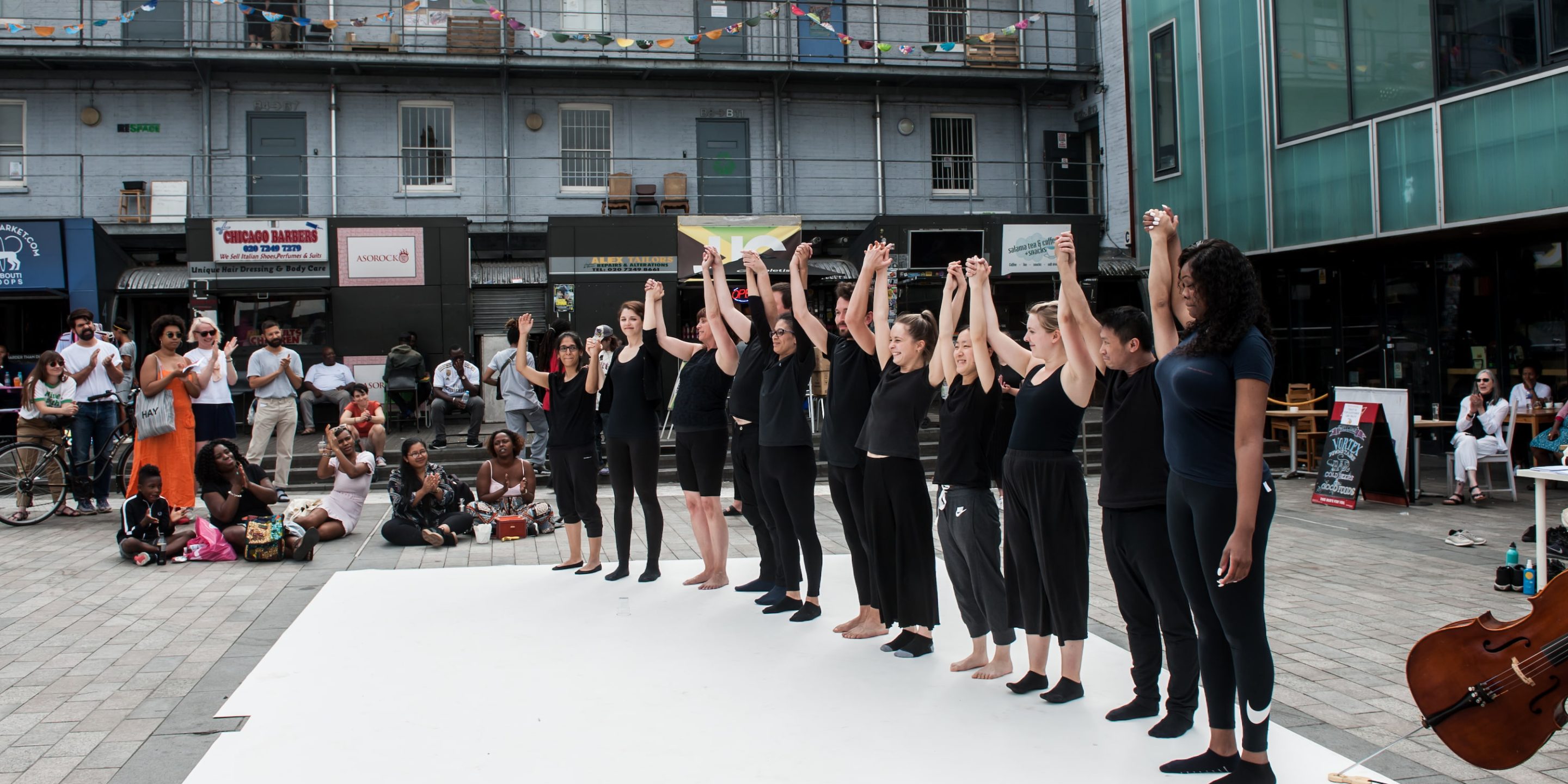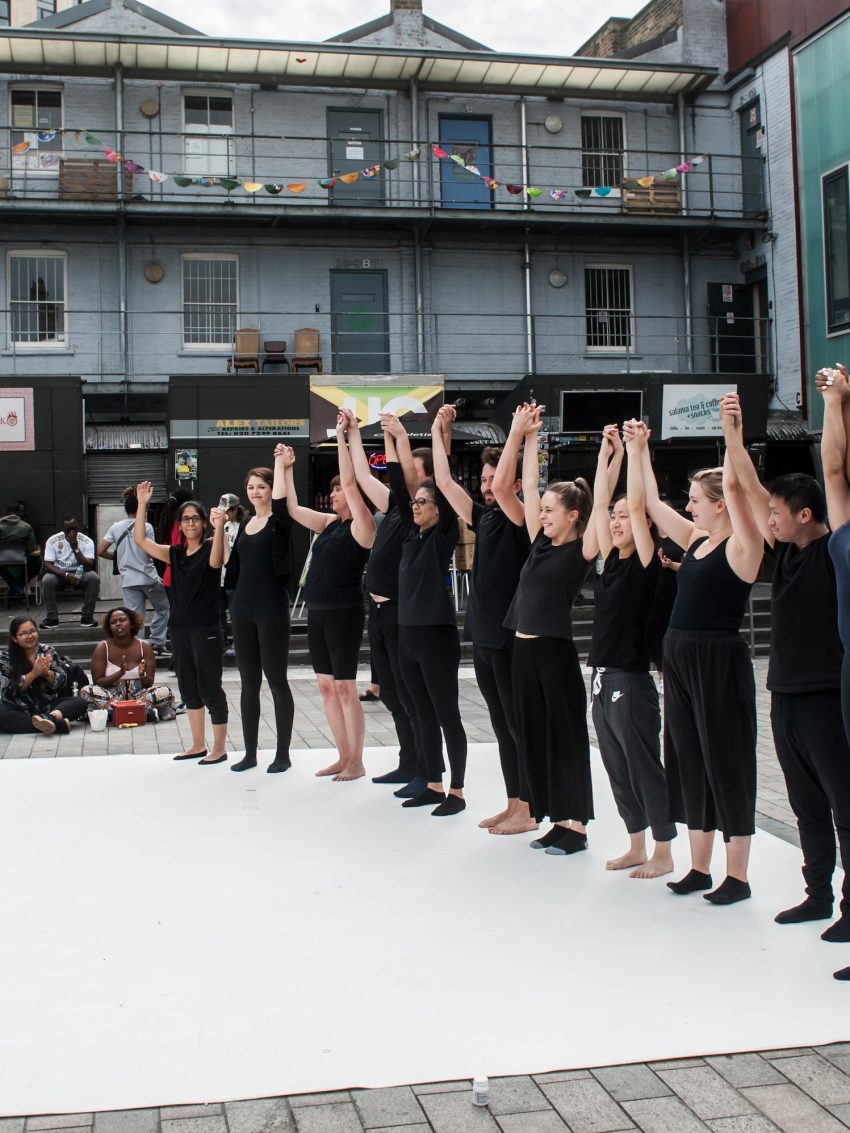A short history of Arcola Participation.
Since opening in 2000, Arcola Theatre has been more than just a venue, it’s become a creative home for local East London communities.
Interested to know how Arcola’s Participation work has evolved over the years? Read on.
Early 2000s: Planting the Seeds
2003
Arcola’s first major outreach project kicks off: Identity Drama School, a free acting program for Hackney teenagers from culturally diverse and at-risk backgrounds. Beyond performance, it offered young people a voice and a space to belong.
That same year, Arcola hosted community events including the Refugee Women’s Association cultural day and Kitap Evi’s Turkish/Kurdish book fair, cementing its role as a community hub.
2004
From this point, things moved fast! Arcola launched after-school acting lessons through partnerships with The Learning Trust. Identity Drama School grew to three weekly sessions.
Late 2000s: Building Community Companies
As Participation matured, Arcola developed long-term community theatre groups, which was groundbreaking in a London theatre scene where professional arts venues didn’t normally offer such participatory programmes.
Identity Drama School became the foundation for Arcola Academy, a structured training programme for 18 – 25-year-olds living, working, or studying in Hackney. Alongside it, Arcola Youth Theatre supported ages 13 – 17, offering a much-needed pathway into the arts.
Alumni like Arinzé Kene and Wunmi Mosaku are proof of how powerful this model has been, with both going on to successful careers in theatre, film, and television.
2007 – 2010s: Innovation and Growth
2007
Arcola began experimenting with sustainable technology – launching the Green Arcola initiative. By 2008, shows such as The Living Unknown Soldier were being powered by hydrogen fuel cells.
Around the same time, Participation and professional productions began to overlap more, blurring the lines between community and professional theatre.
Late 2010s: Storytelling and Recognition
DIY History Project
During this project, locals became the storytellers, creating performance-based histories of Hackney – mixing theatre with cultural archives.
2017
The Creative Disruption Festival launched and won the Adiha Antigha Award. It quickly became an annual celebration of original work by Arcola’s community companies.
Some of the highlights from Creative Disruption ‘17 include:
- UNDERCOVER by the Men’s Mental Health Company
- BEAUTIFUL by the 50+ Group
- CHOLERA STREET by Ala-Turka
- Opening Night Cabaret by the Queer Collective and Project Indigo
2018 & 2019
The festival grew, featuring even more diverse groups – LGBTQIA+, women’s, youth, Turkish, and more – rooting Arcola’s reputation as a participatory powerhouse.
2020s: Adaptation and Expansion
2021
In response to the pandemic, Arcola Outside was born: an open-air, sustainable theatre space rooted in community and safety.
2022
- The Mental Health Community Theatre Company toured performances across East London with new funding support.
- Queer Collective continued its dynamic exploration of identity through performance.
2024 – 2025: Participation Today
By 2024, Arcola Participation was creating over 13,000 opportunities a year through youth programmes, training, and community-led theatre. New initiatives include:
- SAWA Community Theatre Company, supporting refugees, migrants, and displaced people.
- Collaborations with Hackney Migrant Centre and Islington Migrant and Refugee Centre.
2025 and beyond
Participation remains core to Arcola’s artistic identity and mission – empowering people across generations and backgrounds to tell their stories, find community, and make theatre that matters.
Written by Katie Wilson, Smith College intern at Arcola Theatre, Summer 2025 (funded by the Praxis program)


